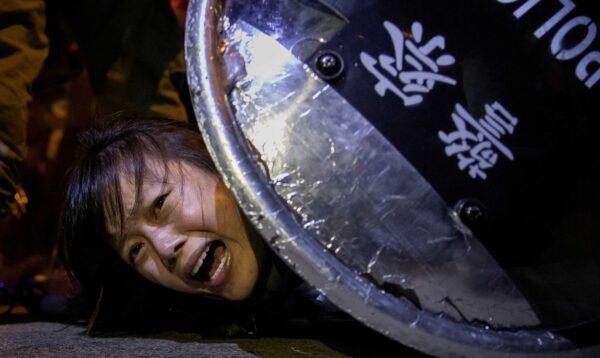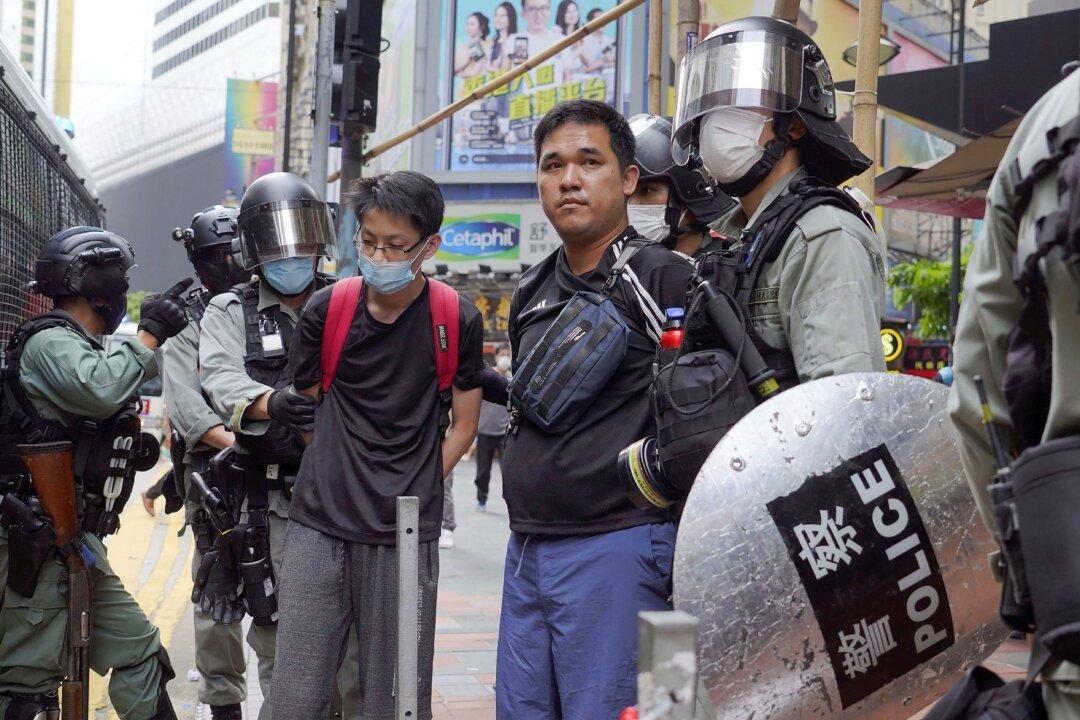A coalition of democratic nations including Australia, the United States, the UK, and Canada have combined to condemn Beijing as it formally passed a new security law targeting Hong Kong. It is the second time this week that Australia combined with a number of other nations to do so.
The joint statement said the move would “curtail the Hong Kong people’s liberties and, in doing so, dramatically erode Hong Kong’s autonomy and the system that made it so prosperous.”
“We are also extremely concerned that this action will exacerbate the existing deep divisions in Hong Kong society,” the statement read. “The law does nothing to build mutual understanding and foster reconciliation within Hong Kong.”
“The world’s focus on a global pandemic requires enhanced trust in governments and international cooperation. Beijing’s unprecedented move risks having the opposite effect.”
The statement concluded by calling for “a mutually acceptable accommodation that will honour China’s international obligations under the UN-filed Sino-British Joint Declaration.”
Hong Kong Protests Restart Due to Beijing’s Security Law
Protests in Hong Kong have been reignited with Beijing’s controversial security bill. The bill bypasses Hong Kong’s legislature completely, while in the past, previous attempts to pass similar legislation have been through the city’s Legislative Council.The bill gives the NPC power to pass laws to “safeguard national security” and prevent alleged activities that could “split the country, subvert state power, organize and carry out terrorist activities,” as well as prevent “foreign and external forces” from interfering in the city’s affairs.
Joseph Siracusa, professor of international diplomacy at the Royal Melbourne Institute of Technology, told The Epoch Times that Beijing’s new security law “effectively ends” the current legal framework of Hong Kong and will see the communist regime attempt to “crush” the protest movement.
Siracusa said protestors could resist but eventually would retreat “in the face of brutal force.”
Under Beijing’s laws “leaders will be arrested and tried for various breaches of secession, subversion, or terrorism; some will go underground, and some will flee,” he said.

“Beijing will crush the movement as an example to others (including Taiwan) that dissent will not be tolerated,” Siracusa said.
However, Beijing will likely pay a “heavy political price” and create a “tsunami of anti-Chinese feeling throughout the international community.”
Why Is Beijing Moving on Hong Kong Now?
The Chinese communist regime must currently contend with a new outbreak of the pandemic in its north-eastern regions, and a severely weakened economy caused by the global shutdown.Siracusa believes that despite these challenges, the Chinese regime has made its move because “the time was perfect, under the radar of the [CCP virus] pandemic crisis.”
“Xi Jinping, who can no longer count on a booming economy, has moved to complete the Greater China,” he said. “And he could not hope to bring Taiwan to heel, without first crushing the [protest movement] in Hong Kong.”
“Greater China” is an adoption of an expansionist policy from the former Soviet Union, which sees the communist regime uniting ethnic Han Chinese across Asia under the one banner.
“In any case, Xi’s endgame is the return of Hong Kong and Taiwan to the fold, and he will pay any political price to do so,” said Siracusa.
Control of Hong Kong is important because Beijing sees the pro-democracy protests as a potential “counter-revolution” to its rule.
The Chinese Communist Party (CCP) has, since gaining power in 1949, instigated regular crackdowns whenever a perceived threat emerges, these crackdowns include the Tiananmen Square massacre in 1989 and the persecution of the Falun Gong meditation movement in 1999.
“You can always trust communists to act like communists,” Siracusa said.
“The CCP is mindful that Bolshevism (Soviet rule) only lasted 73 years, and that they (the CCP) are already up to 70. Or to put it another way, how long can 90 million party members hold back 1.3 billion fellow countrymen?”





